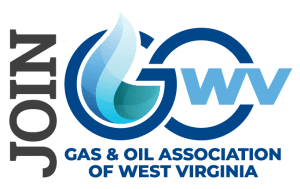HUNTINGTON – The critical connection between energy, health care and infrastructure was the subject of the 12th annual Energy & Natural Resources Symposium in Huntington on Monday.
“The focus really looks at energy and energy companies and how they play a role in the community,” said Kevin Craig, executive vice president of coal for Natural Resources Partners L.P.
Craig was the moderator of the event at the St. Mary’s Conference Center on 5th Avenue in Huntington.
The event was also sponsored by the Huntington Regional Chamber of Commerce.
“Having been a participant in the past, this annual event gives attendees a better look at economic issues in our region, especially in regards to our state’s energy industries,” said Bill Bissett, president and CEO of the Huntington Regional Chamber of Commerce. “Growing up here, it is easy to think that we are far from the coalfields or natural gas wells in West Virginia, but our economic connection to these industries has a direct effect on livelihoods and other economic sectors here in our region.”
The first speaker was Bill Raney, president of the West Virginia Coal Association.
“Downturns in the West Virginia coal market are normally tied to the economy, but this downturn is tied to the administration,” Raney said.
Raney says under President Barack Obama’s administration, coal has lost nearly 9,000 direct jobs and 35 million tons in coal production.
“This has had a direct impact on the state’s budget crisis,” he said. “One man in the White House can make a difference.”
Raney said there is renewed hope with President-elect Donald Trump.
“We will have to see what happens, but we know what happened under the current administration,” he said.
Raney said coal is still relevant to West Virginia, the nation and the world.
“We must encourage mining and turn liabilities into assets,” he said. “The country needs an energy plan that includes all sources of energy, including coal.”
Maribeth Anderson, director of government and community relations with Southwestern Energy and chairwoman of the West Virginia Oil & Natural Gas Association, said shale gas development continues in West Virginia.
“More natural gas production can also help the state with its budget crisis and can help our country be energy self-sufficient,” she said.
Kevin Fowler, president and CEO of Cabell Huntington Hospital, said the energy industry has a direct impact on the hospital.
“We are smack dab in the middle of coal and natural gas producing in the region,” Fowler said. “A vast majority of our patients and their families are directly or indirectly tied to energy companies.”
Fowler said the hospital could be negatively impacted if the downturn in the energy industries continues.
“I don’t think we could survive without the energy companies in our region,” he said. “The fiscal soundness of our entire region is at stake here. The hospital is growing, but it will not be sustainable without a viable and healthy energy industry here.”
Col. Philip Secrist III, Huntington district commander of the U.S. Army Corps of Engineers, spoke about the region’s navigation infrastructure.
“We want to protect our environment while also enhancing the region’s economy,” Secrist said. “Sometimes it appears these can be in conflict with each other, but we reach solutions through partnerships with city, local, state and national officials as well as several industry partners. Those energy industry partners are so important, so a symposium like this one that shows the critical connection between energy, health care and infrastructure is vital to a good environment and a good economy.”
Cabell Huntington Hospital also sponsored a reception immediately following the event.
Follow reporter Fred Pace at Facebook.com/FredPaceHD and via Twitter @FredPaceHD.

